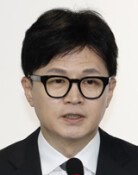PM Modi is changing India
Raj Krishna, a professor at the Delhi School of Economics, came up with the term "Hindu rate of growth" in the 1970s. It refers to the low economic growth rate of 3.5 percent in India, a country that has many Hindus. It was only one-third of Koreas economic growth rate of 10 percent under President Park Chung-hee. Although India flourished politically as a democracy after becoming independent in 1947, it remained in poverty due to the anti-free market policy inherited from Nehru`s socialism. India finally started to reform its economy and open the market after suffering the economic crisis in 1991.
Indias bureaucracy, which was fostered by a socialist economy for a long time, and its unique culture of attributing everything to Gods will cannot easily go away. Indian Prime Minister Narendra Modi, a man from a poor background who was inaugurated in May last year, opened a new chapter with his Modinomics that values growth, the market, enterprises, and openness. The International Monetary Fund forecasts that India will grow by 7.5 percent this year, surpassing China (6.8 percent). Korea, which once exceeded India in growth, is forecast to grow in the low three percent range. It is a sea change from the past, although it is a bit inappropriate to simply compare the growth rate of Korea whose per capita income is 28,100 U.S. dollars with that of India whose per capita income is 1,626 dollars.
Robyn Meredith, a U.S. journalist, said in her book The Elephant and the Dragon that there will be three powerhouses the U.S., India, and China in the world decades later. The elephant refers to India and the dragon to China. Former Indian Commerce Minister Kamal Nath said that although China won in the short distance race, India would win in a marathon. The success of Modinomics can advance Indias development.
Though India does not have bad laws like the so-called National Assembly Advancement Act, it still has many problems like Korea, such as fierce conflicts between political factions, the deep-rooted influence of the left-wing groups, and politicized labor unions. Corruption in politics and officialdom also serve as a stumbling block to Indias economic development. Nevertheless, Prime Minister Modi consistently seeks reforms in the right direction, winning trust from the business community at home and abroad and making achievements. Grass is always greener on the other side, but hopefully, Korea could have many politicians like Modi.
shkwon@donga.com
Headline News
- N. Korea launches cyberattacks on S. Korea's defense companies
- Major university hospital professors consider a day off each week
- Italy suffers from fiscal deficits from ‘Super Bonus’ scheme
- Inter Milan secures 20th Serie A title, surpassing AC Milan
- Ruling and opposition prioritize spending amid tax revenue shortfalls







